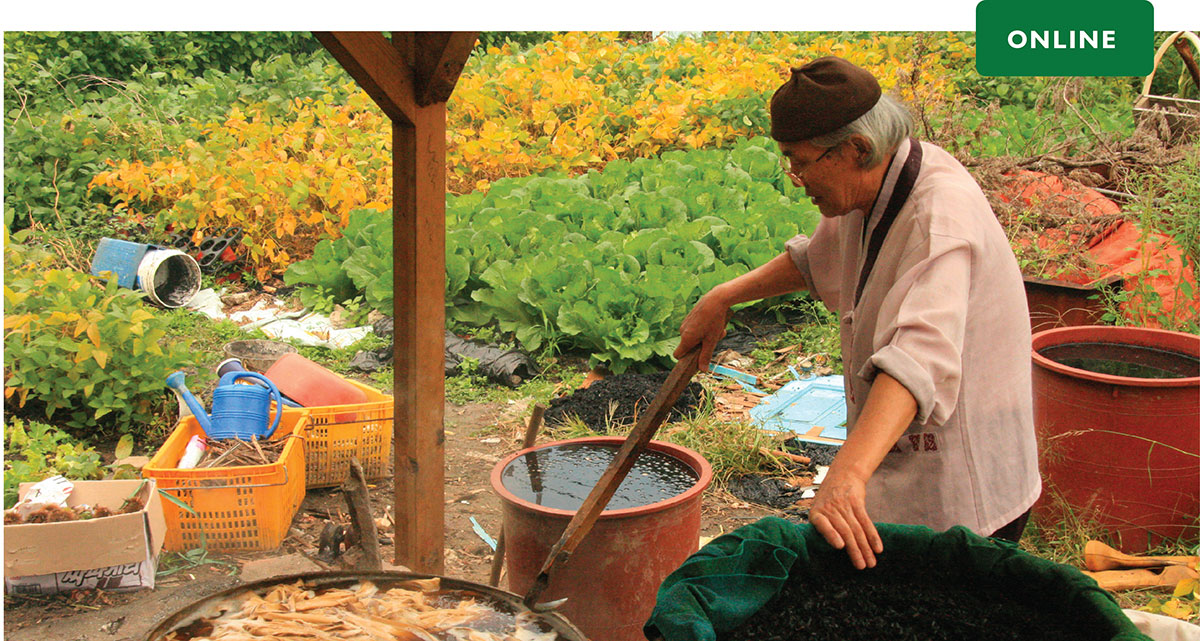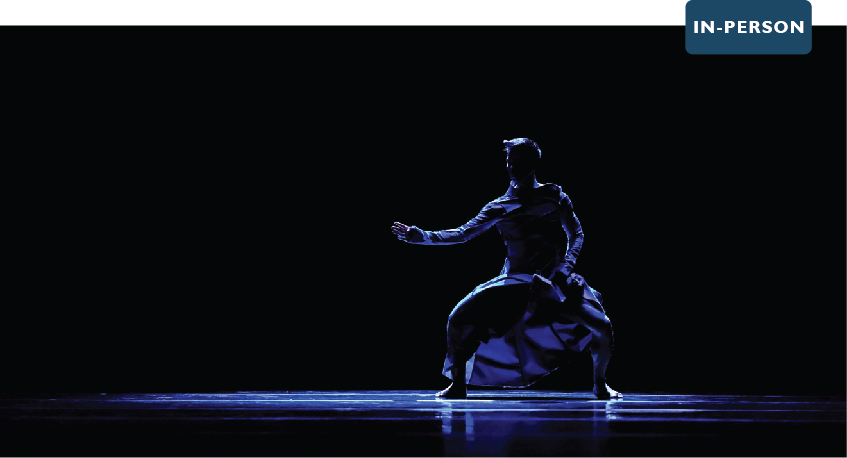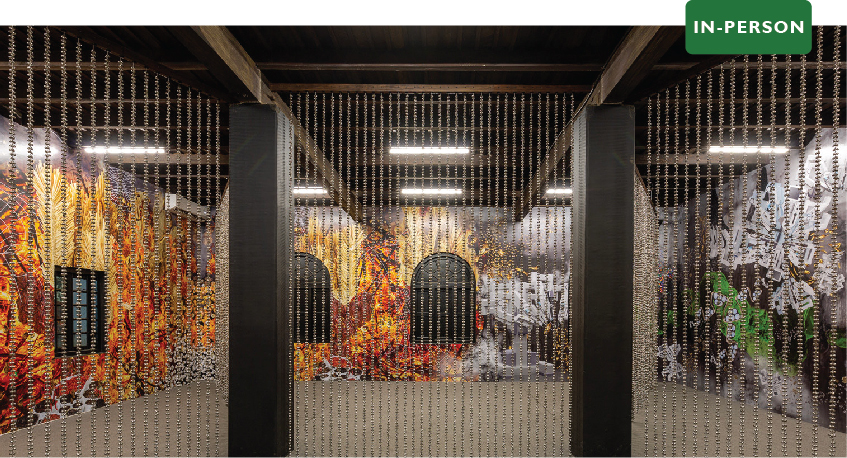
Ravikumar Kashi is a Bangalore-based multidisciplinary artist, writer and educator. His work spans painting and drawing to photography, installation and artist books among other mediums, articulating individual and collective experience of contemporary socio-political and cultural identities.
Kashi has a Bachelor’s degree in Fine Arts from Bangalore University and a Master’s in Fine Arts in Printmaking from M.S. University. He learnt handmade Papermaking from Glasgow School of Art, U.K. while he was there on a Charles Wallace Grant. He also learnt Hanji, traditional Korean papermaking, from Jang Ji Bang, Korea with support from InKo Centre, Chennai.
In 2009 Ravi Kashi visited the Jang Ji Bang mill in Korea, with InKo Centre's support, to meet Korean National Treasure for paper making Jang Yong Hoon and to learn the art of making Hanji, Korea's incredibly versatile paper. Made from the bark of the mulberry, an intense process results in paper that is as soft as silk or as tough as leather.
The process video outlines Ravi Kashi's experience as he learns about the several stages of the process from his master Seong Woo. Informal and conversational, the video captures the love and care with which Hanji, Korea's gift to the world, is made.
Hanji 한지, literally means “the paper of Korea”.
The extraordinary durability of Korean paper comes from the bark of the mulberry tree, from which it is made. The bark of the mulberry is strong and can resist decomposition when it is immersed in the water for 1 year. Several rigorous processes give hanji its unique qualities of fragility and strength. The average life span of Korean paper is 1,000 years! An extremely versatile medium, hanji is used in multiple ways- for archival purposes to preserve books and drawings and historical records; for calligraphy and dyeing.
Ravikumar Kashi is a Bangalore-based multidisciplinary artist, writer and educator. His work spans painting and drawing to photography, installation and artist books among other mediums, articulating individual and collective experience of contemporary socio-political and cultural identities.
In 2009 Ravi Kashi visited the Jang Ji Bang mill in Korea, with InKo Centre's support, to meet Korean National Treasure for paper making Jang Yong Hoon and to learn the art of making Hanji, Korea's incredibly versatile paper. Made from the bark of the mulberry, an intense process results in paper that is as soft as silk or as tough as leather.
The process video outlines Ravi Kashi's experience as he learns about the several stages of the process from his master Seong Woo. Informal and conversational, the video captures the love and care with which Hanji, Korea's gift to the world, is made.
He has held solo shows of his works in Bangalore, Chennai, Hyderabad, Mumbai and Delhi in India and London – U.K. Palo alto – U.S.A., Shanghai - China and Belforte del chienti - Italy. His works have been part of several museum shows, numerous curated shows, group shows and art fairs in India and in different countries around the world.
He has won many awards including the Museo Internazionale Dinamico de Arte Contemporanea, Italy. National award from Lalita Kala Akademi, Delhi. Karnataka Lalit Kala Akademi for his art and Karnataka Sahitya Akademi award for his writing. He also teaches and writes about art. His books Kannele and Anukta have been published by Akshaara Prakashana. His latest book Flexing Muscles was published by Reliable Copy.
For further information, please visit www.ravikashi.com
To view the film clik on www.inkocentre.org/Virtual_Connect_Cultural_Collaborations.html on Friday, 17 February 2023 at 6.00 p.m. IST.
The link to view the film will be accessible until Tuesday, 28 February 2023.
Presened in association with
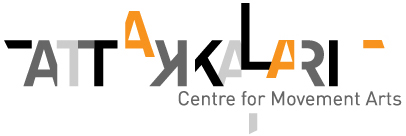
Shadows in Time is a requiem for the lives lost at the hands of political violence. The piece evokes absence and loss and the need to conceal our disillusionment with structures of power. Its first iteration was framed by the military coup and subsequent civil unrest in Myanmar and the second iteration was framed by the armed conflict in Ukraine. Shadows in time exemplifies the unifying power of the experience of historical pain and offers itself to the power of resistance.
Choreographer, Zero Point Motion and Founder and Artistic Director of Dance Theatre Ccadoo, Hobin Park is one of the most exciting and influential contemporary dancers in Korea. Hobin will join a team of international mentors brought together by the Attakkalari Centre of Movement Arts, Bangalore, to share their expertise and guide a group of young choreographers from India and abroad.
Hobin Park will conduct a workshop at the Attakkalari Studio in Bangalore from
17 to 21 February 2023. His performance Shadows in Time will be presented
at the Bangalore International Centre on
Workshop
Date: 17 - 21 February 2023
Venue: Attakkalari Studio
Time: 2 - 8 p.m.
Performance
Date: 23 February 2023
Venue: Bangalore International Centre
Time: 7.30 p.m.
Dancers of all levels are invited to work with Hobin Park, choreographer, dancer and founder of Dance Theatre CcadoO, now re-named Zero Point Motion. The workshop offers training methods from contemporary and modern dance such as floorwork and movement phrases that the choreographer developed based on the release technique. Here is an opportunity to learn from one of the best in the industry!

Hobin Park
Hobin Park is the Founder and Artistic Director of Dance Theatre CcadoO. With every composition Hobin Park presents, words like inimitable and experimental follow close behind. He has emerged as the one to be watched among choreographers in Korea. In 1996 he began with the dance company Jobac and in 2003 he founded the Dance Theatre CcadoO under the banner of a multimedia dance group. He continues to work actively as a choreographer in varied kinds of productions such as dance, theatre, musicals and opera. Hobin Park is heralded as someone who lives in the world of mythology and has a profound poetic sensibility, as someone who represents modern dance and communicates this effectively. His work coalesces dance, science, multimedia technologies and sound that opens up unexpected and exciting new pathways.
Hobin Park will conduct a workshop at the Attakkalari Studio in Bangalore from 17 to 21 February 2023. His performance Shadows in Time will be presented at the Bangalore International Centre on 23 February 2023.
About the Body Matters- Move to Transform Festival
The Body Matters-Move to Transform, Attakkalari’s Arts in Education festival, will bring in expertise, experience and perspectives from dance and allied disciplines such as theatre, sports, music, film, visual arts and education for the benefit of students, teachers, artists and a wider public.
The Body Matters Festival will shed light on creativity, innovation and knowledge production as the driving forces of individual and collective transformation of society through comprehensive and holistic education where arts play an important role.
The Festival aims to explore diverse cultures, corporeal skills and embodiments to provide insight into their role in shaping identities as well as providing sustenance for self-realisation.
Attakkalari Centre for Movement Arts
Attakkalari Centre for Movement Arts is India’s premiere organisation working in the field of contemporary movement arts. Programmes include Education and Outreach, a Diploma in Movement Arts and Mixed Media, a Certificate Course in Movement Arts and Pedagogy, an Incubation Centre for the Arts and Media (ICAM), Research and Documentation, an archive of Indian and Contemporary Somatic Traditions called “Nagarika”, TransMedia Technologies, the Attakkalari India Biennial and the Dance Company. Established in 1992 and currently based in Bangalore, Attakkalari is headed by its Artistic Director, Jayachandran Palazhy.
To book tickets for the performance, please visit https://attakkalari.stores.instamojo.com/product/3669208/shadows-in-time/ To register for the workshop and for more information, please write to info@attakkalari.org or message +91 99729 53973
For further information, please contact: InKo Centre T: 044-2436 1224 E: enquiries@inkocentre.org.
This is a physical event and all prescribed Covid-related protocols will be strictly followed.
Presented with support from
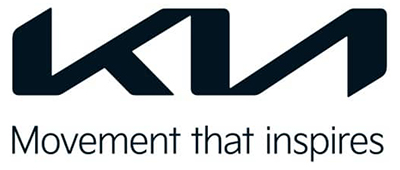
KIA India Ltd.
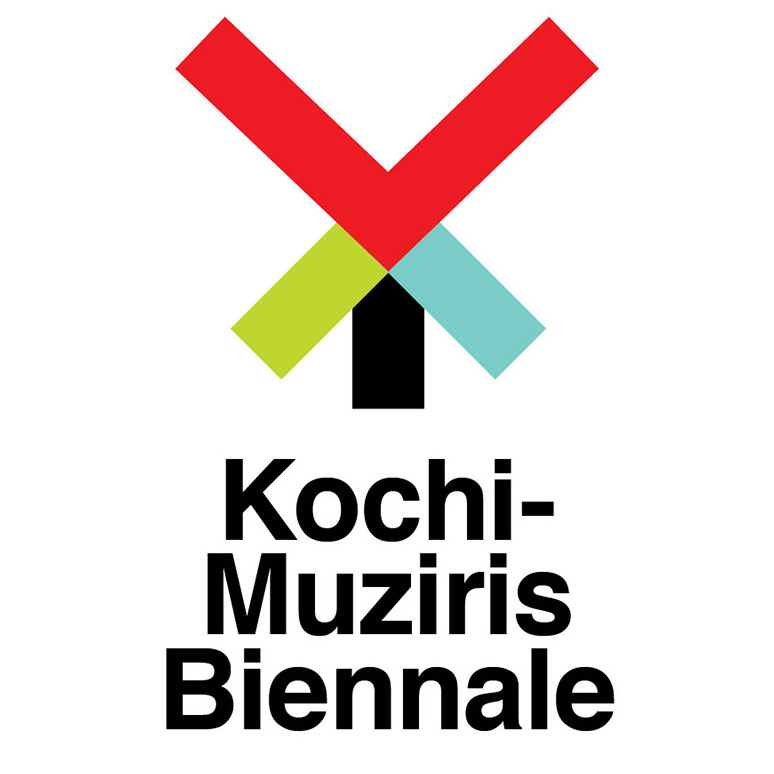
KIA India Ltd.
InKo Centre, with support from KIA India Ltd, are delighted to support acclaimed South Korean contemporary artist Haegue Yang's work at the 5th edition of the Kochi Muziris Biennale Yang’s famed sonic works will be brought to the audiences in a new commission that will be created specially for this edition of Kochi Muziris Biennale.
HaegueYang’s works are internationally appreciated, and known for their eloquent and seductive language of visual abstraction that is often combined with sensory experiences. Lesser known is her ongoing research, which is empowered by close readings of connecting biographical narratives of historical figures, and builds on underlying references to cultural, social and political history.
Her work The Sonic Fabric, will occupy the central exhibition space at the Biennale with a sophisticated sensory experience that will include sound, light and tactility. The Sonic Fabric will envelop the exhibition with sound, creating a specific atmosphere that is visual, spatial and aural. Found objects are covered with stainless steel plated bells, disintegrating the rigorous physical geometry into another illusory geometry of circles. Bells that have been a recurring element in a number of Yang’s works over the past few years have only very recently been used as a principal material for the installation.
The Sonic Fabric will be on view at the Aspinwall House, until Monday, 10 April, 2023 from 10 a.m. to 6 p.m.
The Kochi Biennale Foundation will present the 5th edition of the Kochi-Muziris Biennale from December 12, 2022 until April 10, 2023. Curated by Singaporean artist, Shubigi Rao and titled In Our Veins Flow Ink and Fire, the exhibition will bring together 80 artists and collectives with over 45 new commissions. Originally scheduled for December 2020 and postponed due to the pandemic, the event will be held across multiple venues in Fort Kochi and Ernakulam, in Kerala, India.
In her curatorial framework, Rao notes, “A biennale can be so much more than a mere accumulation of coincidental collisions. As a bulwark against despair, the biennale as commons may seem an impossible idea. But we remember the ability of our species, our communities, to flourish artistically even in fraught and dire situations, with a refusal in the face of disillusionment to disavow our poetry, our languages, our art and music, our optimism and humour. To envision this biennale as a persistent yet unpredictable murmuration in the face of capriciousness and volatility comes from my unshakeable conviction in the power of storytelling as strategy, of the transgressive potency of ink, and transformative fire of satire and humour”.
About The Kochi-Muziris Biennale:
The Kochi-Muziris Biennale is a project founded and organised by the Kochi Biennale Foundation.Established to develop and execute cultural and educational initiatives, amongst them to host India’s first Biennale. The custodianship of a sustainable platform for contemporary art in South Asia is central to the Foundation’s purpose.
To this end, the Foundation works around the year to promote national consensus on investment in contemporary art infrastructure and to broaden public access to art across India. You can see a brief overview of the previous editions via the virtual exhibition on Google Art Project. www.google.com/culturalinstitute/collection/kochi-biennale
The Kochi-Muziris Biennale is a non-profit, artist initiative that actively seeks funding from participating countries and other cultural agencies, as well as exhibition sponsors to assist with meeting the costs of production, freight, installation, travel and exhibition expenses. The Biennale has successfully received funding from several international embassies, arts councils, foundations and partner organisations.
About Haegue Yang:
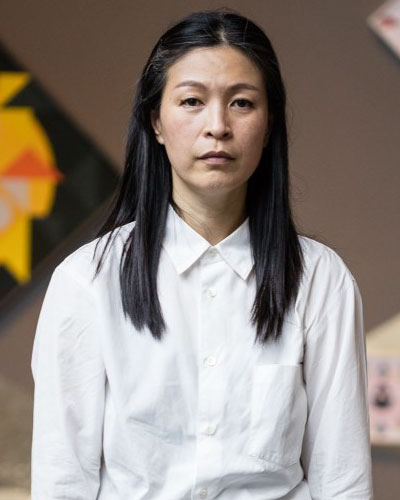
Haegue Yang was born in 1971 in Seoul, South Korea. She has been dividing her time between Germany and Korea since the mid-1990s. These countries are also home to her two studios, where she works on a myriad of projects. Yang studied sculpture at Seoul National University as well as at the Städelschule in Frankfurt. Since 2018, she has been teaching at her alma mater in Frankfurt. In 2006, the self-initiated exhibition Sadong 30 was staged in her grandmother’s abandoned house in Incheon, a satellite city of Seoul on the west coast of Korea, and it is regarded as her seminal exhibition today.
In 2018, Haegue Yang was awarded the Wolfgang Hahn Prize by the Gesellschaft für Moderne Kunst, Museum Ludwig, Köln.
Yang’s work has been presented as solo exhibitions by the following institutions: SMK, Copenhagen (2022); Tate St Ives, St Ives (2020); Museum Of Modern Art, New York (2019); The Bass, Miami Beach (2019); South London Gallery (2019); Museum Ludwig, Köln (2018); KINDL - Centre for Contemporary Art, Berlin (2017); Hamburger Kunsthalle, Hamburg (2016); Musée National d'Art Moderne, Centre Georges Pompidou, Paris (2016); UCCA Ullens Center for Contemporary Art, Beijing (2015); Leeum, Samsung Museum of Art, Seoul (2015); Solomon R. Guggenheim Museum, New York (2015); Tate Modern, London (2012); Kunsthalle Lingen (2011); Aspen Art Museum (2011); Kunsthaus Bregenz (2011); New Museum, New York (2010); Walker Art Center (2009); South Korean Pavilion, Venice Biennale (2009); Sala Rekalde, Bilbao (2008) among others.
Her works are featured in the collection of numerous institutions, including the Tate Modern, London, U.K.; the Musée National d'Art Moderne, Centre Georges Pompidou, Paris, France; Carnegie Museum of Art, Pittsburgh, PA, U.S.A.; Leeum, Samsung Museum of Art, Seoul, South Korea; Los Angeles County Museum of Art, CA, U.S.A.; Museum Ludwig, Köln, Germany; Museum of Modern Art, New York, U.S.A.; M+, Hong Kong amongst others.
About The Sonic Fabric:

Yang’s famed sonic works will be brought to the audiences in a new commission that will be created specially for this edition of the Kochi Muziris Biennale.
Yang’s works are internationally appreciated, and known for their eloquent and seductive language of visual abstraction that is often combined with sensory experiences. Lesser known is her ongoing research, which is empowered by close readings of connecting biographical narratives of historical figures, and builds on underlying references to cultural, social and political history.
Her work will occupy the central exhibition space at the Biennale, with a sophisticated sensory experience that will include sound, light and tactility. The Sonic Fabric will envelop the exhibition with sound, creating a specific atmosphere that is visual, spatial and aural. These ‘lines’ and ‘geometric shapes’ that create the fabric are objects that are covered with stainless steel plated bells, which transforms the hard-edged shapes into ‘circles,’ disintegrating the rigorous physical geometry into another illusory geometry of circles.
Bells have been a recurring element in a number of Yang’s works over the past few years and have only very recently been used as a principal material in several new sculptures, including Sonicwears (2013), Sonic Rotating Ovals (2013) and Sonic Dances (2013).
The Sonic Fabric will be on view at the Aspinwall House, until Monday, 10 April, 2023 from 10 a.m. to 6 p.m.
The Fifth Edition of Kochi-Muziris Biennale runs from 12 December, 2022 All venues are open every day from 10 a.m. to 6 p.m.
For further information, please contact: InKo Centre T: 044-2436 1224 E: enquiries@inkocentre.org.
This is a physical event and all prescribed Covid-related protocols will be strictly followed.
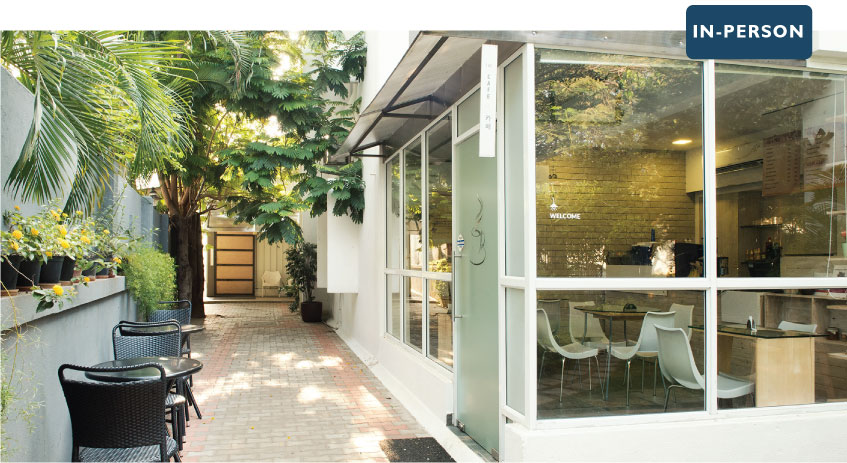
24
March
We are delighted to announce the re-opening of the Cafe @ InKo Centre. Called Cafe Dokebi, it promises to be a fun space to visit, to work or to simply hang out!
Dokebi appears in Korean traditional folklore and bedtime stories as naughty and spirited, often portrayed as full of tricks and surprises.
Cafe Dokebi aims to present a menu that is playful, providing a twist to the traditional and like the Dokebi, likely to surprise you!
Apart from an interesting menu, the cafe will display items from Korea like traditional cloth and Korean souvenirs , as well as logo printed goods that will give you a feel of Hallyu, the K-wave that is now spreading across the world!
Watch this space for the exact date when we re-open! We look forward to welcomg you at Cafe Dokebi.


